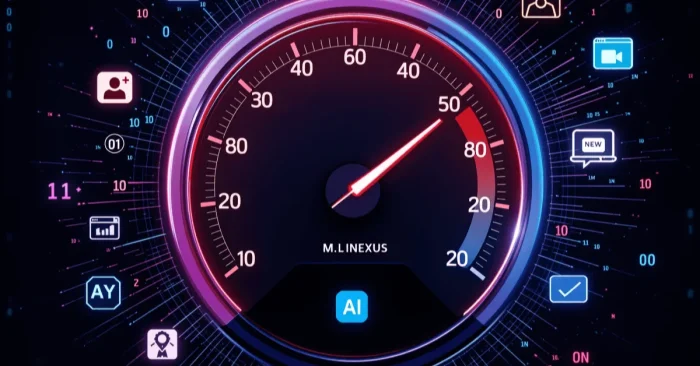Overview
AI tools for website speed optimization help websites load faster by identifying bottlenecks, compressing assets, and optimizing server response. These solutions use machine learning and automation to analyze website performance, make improvements, and maintain speed over time. Faster websites improve user experience, reduce bounce rates, and increase search engine ranking. Whether it’s a small blog or a large e-commerce site, AI-powered speed tools can make a noticeable difference.
1. AI in Performance Diagnostics
AI tools scan a website to measure load time, identify slow-loading resources (images, scripts, etc.), and locate bottlenecks like render-blocking JavaScript or long server response times.
2. AI for Image & Asset Optimization
Automatically compresses images, serves responsive formats (e.g. WebP/AVIF), and lazy-loads assets so they don’t slow down initial rendering.
3. AI in Caching & Content Delivery
Uses predictive caching, edge networks, and intelligent CDNs to serve content faster to users, reducing latency and speeding up load times globally.
4. AI for Code & Script Minification
Automatically reduces file sizes by minifying CSS, JS, and HTML; removing unused code; and bundling scripts to reduce HTTP requests.
5. AI in Resource Prioritization
Prioritizes critical resources (above‐the‐fold content) so essential parts load first, improving perceived performance.
6. AI for Lazy Loading & Deferred Loading
Delays non-critical scripts and images, loading them after the main content renders, to speed up initial page load.
7. AI in Server & Database Optimization
Optimizes back‐end performance by recommending server configuration adjustments, query optimizations, and database indexing to reduce delays.
8. AI for Real-Time Monitoring
Watches site performance continuously, alerts when speed drops, and suggests fixes automatically.
9. AI in Predictive Performance Alerts
Uses historical performance data to predict slow-downs before they happen and triggers proactive maintenance.
10. AI for Mobile & Device-Specific Optimization
Tailors performance improvements for mobile devices, slower networks, and different screen sizes to ensure fast experience everywhere.
(FAQs)
Q1: Can AI tools fully optimize website speed automatically?
They can handle many optimization tasks automatically, but complex custom components might still need manual tuning.
Q2: Will optimizing speed impact site functionality?
If not done carefully, optimizations like lazy loading and deferred scripts can affect UX; good AI tools provide previews and testing modes.
Q3: Are these tools useful for all kinds of websites?
Yes, from simple static sites to complex, dynamic or e-commerce websites; performance gains depend on existing bottlenecks and infrastructure.
Learn More About AI Course https://buhave.com/courses/learn/ai/






